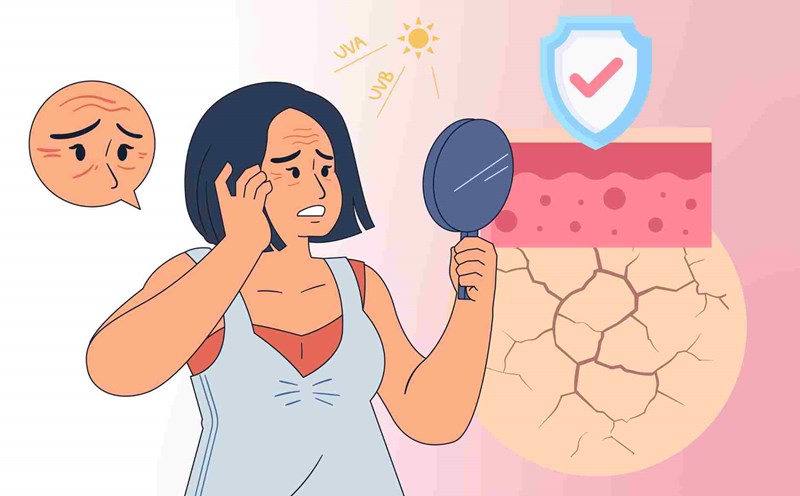Vitamin D and its relationship with skin aging
Many people believe that vitamin D is an anti-aging "medicine". In fact, this vitamin supports the production of collagen and elastin, two factors that help skin become smooth and elastic. If you are deficient in vitamin D, the rate of aging can happen faster.
A key sign of aging is the shortening of telomere, the protective shell at both ends of the chrome. As cells divide, telomere gradually shorten, making DNA vulnerable and dotitable. Many factors such as lack of sleep, stress, environmental pollution or a diet rich in processed foods can all speed up this shortening.
Meanwhile, a healthy lifestyle such as getting enough sleep, reducing stress and exercising, especially endurance exercises, has been shown to slow down the rate of telomere shortening.
Research results and expert opinions
A study published last July followed more than 900 people in clinical trials on vitamin D and omega-3 supplementation. The group who took 2,000 IU of vitamin D3 per day lost less than 140 pairs of DNA fiber, and had longer telomeres. This is the basis for many people to speculate that vitamin D has the ability to slow down aging.
However, scientists note that telomere shortening is just one of at least 12 proposed aging mechanisms. Vitamin D supplementation is only effective when the body is deficient, but for people who already have enough needs, this benefit has not been firmly affirmed.
Vitamin D plays an important role in many biological processes, says Dr. Sohaib Imtiaz, Medical Director of verywell Health (USA. However, there is currently no strong evidence that it can reverse aging. Reasonable supplementation when deficient is necessary, but vitamin D should not be considered a generic drug".
Vitamin D helps maintain skin and cell health, but there is no convincing evidence that it can reverse the aging process. To slow down signs of aging, it is important to combine a balanced diet, moderate activities and regular exercise.











